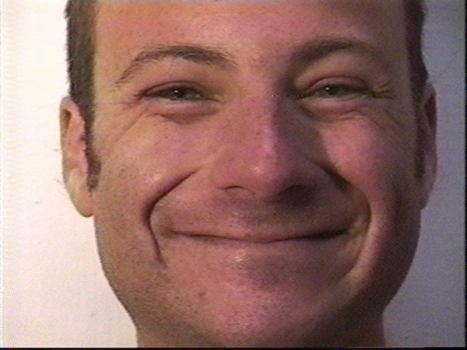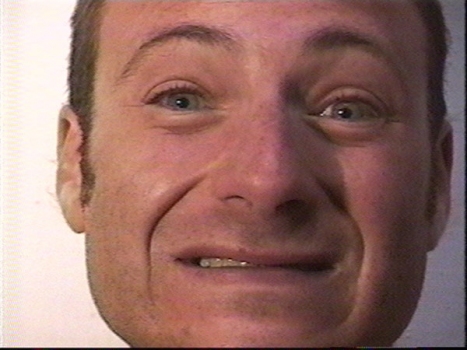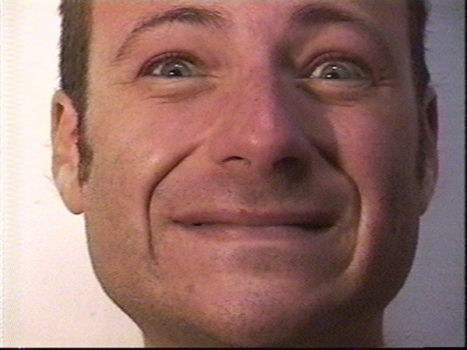The most enjoyable part of my work as a museum curator was developing close relationships with artists, giving me privileged access to how they think and work, including opportunities to experience their art at its most vulnerable, in process. From time to time I will share their work as a way to reflect on the theological nature of art. One artist who has had a profound effect on my thinking over the past decade is Charley Friedman, whose One Hour Smile (1995) is one of the most provocative and enjoyable works I’ve encountered.
Filmed while Friedman was in residency at the Bemis Center for Contemporary Arts in Omaha, Nebraska, the One Hour Smile is a video performance that begins and ends with a smile. Looking into the lens of a video camera with an open, inviting face, Friedman smiles. And he holds it for one hour.
Friedman’s smile gradually becomes a vehicle for excruciating pain, as muscles tremble and eyes water. And what comes easy, as an expression of joy, becomes an act of will.
Throughout the video performance Friedman’s smile bears pain and suffering, enabling the viewer to participate vicariously in the ebbing and flowing of the artist’s undeniable pain, in a context that is unavoidably hilarious. (I first saw the video seventeen years ago with the director of the museum and we laughed so hard we were both crying, filled with such joy yet feeling so much compassion for the pain he was feeling.)
Yet there are moments during this performance in which Friedman’s muscles loosen and his face, inexplicably, produces a natural expression of happiness amidst the pain, a smile working through suffering.
An artistic practice that embraces the fallen human condition, working with brokenness and leaning into pain and suffering, does not have to result in dark, angst-ridden work that produces despair and isolation. It can do the opposite.
It can make us smile.
See www.charleyfriedman.com for more information about Charley Friedman’s humorous and graceful work.














